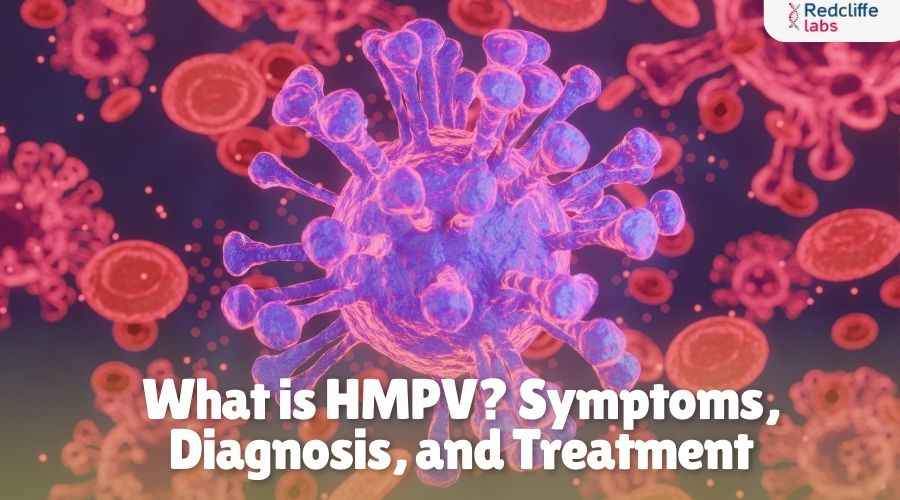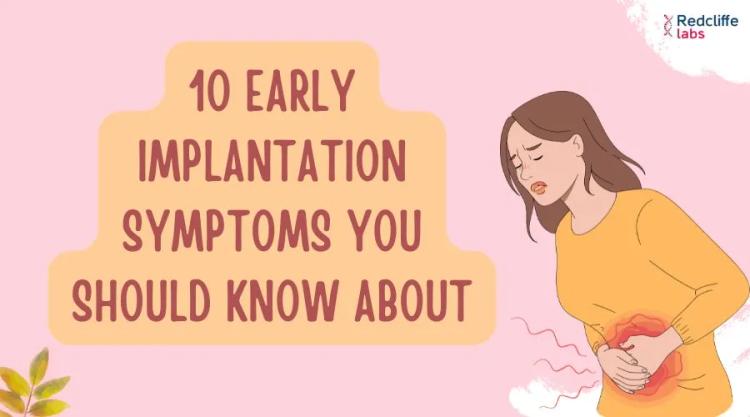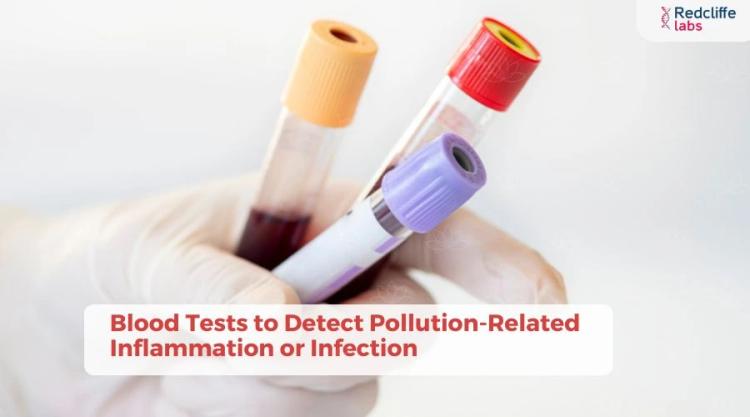What is HMPV? Symptoms, Diagnosis, and Treatment

Medically Reviewed By
Dr. Geetanjali Gupta
Written By Kirti Saxena
on Jan 7, 2025
Last Edit Made By Kirti Saxena
on Jul 19, 2025

A recent Human Metapneumovirus (HMPV) outbreak in China has raised alarm globally. Several countries, including India, are monitoring the HMPV spread closely.
But is it really a cause of worry?
Is this virus similar to the COVID-19 Virus?
What are the symptoms of HMPV, and how can this be diagnosed? What are the symptoms and treatment measures? Let's understand everything in detail. What are the treatment and preventive measures? Let's understand everything in detail.
Overview
Human Metapneumovirus (HMPV) is a respiratory infection that commonly causes symptoms similar to a cold, cough, or flu. If you catch the HMPV virus, you might cough or wheeze, have a runny nose, or have a sore throat, which makes it difficult to diagnose. Most cases are mild, but children under 2 years old, adults over 65, and people with weak immunity are at higher risk of serious illness.
The HMPV virus belongs to the Pneumoviridae family and is related to respiratory syncytial virus (RSV), another common cause of respiratory infections in kids. It was first discovered in 2001 and causes respiratory tract infections, particularly in young children, elderly individuals, and those with weakened immune systems.
Recent Cases of HMPV In India
The Indian Council of Medical Research (ICMR) has detected two Human Metapneumovirus (HMPV) cases in Karnataka. HMPV is a virus that causes respiratory infections and is already circulating globally, including in India. The two affected individuals are both infants who were diagnosed with bronchopneumonia and admitted to Baptist Hospital in Bengaluru. The first case is a 3-month-old female, who has since been discharged, and the second case is an 8-month-old male, who tested positive for HMPV on January 3, 2025, and is currently recovering. Neither of the infants has a history of international travel.
What are HMPV Symptoms?
Well, the HMPV symptoms are similar to those of the common flu and the virus. However, it is very challenging to differentiate between a common cold and flu. Let's understand the symptoms of the HMPV virus-
Mild Symptoms of HMPV in Adluts
- Fever
- Cough.
- Runny Nose
- Sore Throat
- Rashes
- Wheezing
- Shortness of Breath.
- Fatigue
- Chest Tightness
Severe HMPV Symptoms in Adults
- Difficulty Breathing
- Chest Pain
- High Fever
- Vomiting
Common Symptoms of HMPV in Children
The HMPV symptoms primarily affect young children, causing mild to severe respiratory illnesses. Here are some common symptoms of HMPV in children include
- Mild Cold-Like Symptoms
- Runny nose
- Nasal congestion
- Cough
- Mild fever
- Wheezing
- Sore throat
- Fatigue or lethargy
- Loss of appetite
- Body aches
How common is HMPV?
Studies show that nearly 10% to 12% of respiratory diseases in children are caused by HMPV. In most cases, the symptoms are mild; only 5% to 16% of children develop lower respiratory tract infections like pneumonia.
Causes of HMPV
The HMPV virus is a small germ entering your body and multiplying with your cells. It's part of a virus that causes RSV, measles, and mumps. Here is how the HMPV virus is transmitted-
- Person-to-Person Contact—The virus can easily spread through respiratory droplets when an infected person coughs, sneezes, or talks.
- Surface Contamination- HMPV can survive on surfaces, and people can get infected by touching surfaces like phones, door handles, keyboards, or toys
- Close Contact- If you have close contact with an infected person, you can transmit the spread of the disease. Avoid shaking hands, hugging, or kissing.
Who is at High Risk of Human Metapneumovirus?
While anyone can catch the HMPV virus, certain people are at higher risk. These include:
- Infants and Young Children under 5 are susceptible to HMPV
- Older adults aged over 65
- People with Weak immunity, such as people with HIV/AIDS
- People having Asthma or COPD.
- Pregnant women
Diagnosis and Tests For HMPV
Your healthcare provider first diagnoses HMPV based on your symptoms and health history. They suggest a PCR or Rapid antigen test to confirm the HMPV virus.
The sample will be taken using a swab from your nose or throat. The lab tests determine the viruses and other infections.
At Redcliffe Labs HMPV RT-PCR test is available. You can book your test online and get your test done right from your home. The HMPV test results will be available within 48 hours of sample collection.
Management and Treatment For HMPV
There is no specific treatment or medications available for the HMPV virus. Most of the people recover on their own. Here are some common treatments for HMPV:
- Symptomatic Relief—Your doctor may recommend medications based on your symptoms. For fever, they can suggest medicines like acetaminophen; for cough, they can suggest expectorants.
- Oxygen Therapy—People with severe respiratory symptoms or low oxygen levels will require oxygen therapy through a tube in their nose or a mask on their face.
- IV Fluids- In severe cases, your doctor may advise you to take an IV to deliver medications or glucose directly to veins.
- Corticosteroids- Steroids may be needed to reduce inflammation and ease some of your symptoms.
Tips to Prevent HMPV Virus
You can reduce your risk of getting the HMPV Virus by taking the necessary precautions. Here are some key preventive measures:
- Handwashing—Wash your hands frequently with soap and water for at least 30 seconds after coughing, sneezing, or touching surfaces.
- Hand Sanitizers—Carry an alcohol-based hand sanitizer containing at least 60% alcohol to sanitize your hands.
- Cover Coughs and Sneezes—Always wear a mask when going outside and cover your nose and mouth properly with a handkerchief or tissue when sneezing or coughing to prevent the transmission of droplets.
- Avoid close contact—Avoid close contact with people who are sick and have colds and flu. If you are unwell, stay home to prevent spreading the infection to others.
- Disinfect Common Surfaces—To decrease the risk of transmission, frequently clean and disinfect surfaces used daily, such as doorknobs, cell phones, and light switches.
- Wear Masks—A mask can help reduce the spread of respiratory viruses like HMPV in crowded places or during peak respiratory infection seasons.
Complications Associated With HMPV
Most people recover from HMPV in about 7 to 10 days without complications. However, certain groups face a higher risk of severe complications:
- Pneumonia- Severe HMPV Virus may lead to viral pneumonia, which may require hospitalization and ICU for treatment.
- Secondary Bacterial Infections: These infections, such as bacterial pneumonia, may develop as complications due to a weakened immune system.
- Pregnancy Complications- Respiratory issues caused by HMPV during pregnancy, which may lead to fetal and maternal health risks.
- Bronchiolitis—Infants and young children are at high risk of inflammation and blockage of the airways, which may cause difficulty breathing and wheezing.
- Exacerbation of Chronic Conditions- HMPV can worsen respiratory issues such as asthma or COPD.
When Should You Consult Your Doctor?
You should consult your doctor if you or your child is experiencing symptoms of a respiratory infection and have an underlying condition that increases the risk of severe illness.
If the symptoms persist, such as cough or cold symptoms lasting more than 10 days or fever lasting longer than three days, seek medical advice.
Seek medical attention if you or the child experiences severe symptoms such as a higher fever (over 103°F (39.4°C)), difficulty breathing, bluish skin, lips, or nails, or a worsening of other health issues. Proper care can prevent complications.
The Final Words
Human Metapneumovirus (HMPV) is a contagious respiratory virus that can cause symptoms similar to mild cold-like signs to more severe respiratory illness. While the virus is usually not life-threatening for most people, there are still people, such as infants, older people, and immunocompromised people, who are at higher risk for complications. Understand the symptoms, causes, and treatments of HMPV to prevent yourself and your loved family from contracting it during peak infection seasons. Through good hygiene, preventive practices, and appropriate medical care, most people can recover from HMPV without significant complications.
FAQ
1. How long does it take to recover from human metapneumovirus?
Most people with HMPV recover in 7–10 days, but this time may vary depending on the severity of the illness.
2. How long have you been contagious with human metapneumovirus?
Although the exact time a person becomes contagious with human metapneumovirus (HMPV) is unknown, most recover within 5–14 days of infection.
3. What is the treatment for HMPV?
There is no proper treatment for HMPV, which is symptom-based. For mild cases, your doctor may recommend appropriate hydration and over-the-counter medications to manage fever and respiratory issues.
4. Do antibiotics treat human metapneumovirus?
No. Antibiotics only treat bacteria. HMPV is a virus, and antibiotics are not effective in the treatment of HMPV. Currently, there is no specific and effective treatment available for this virus. Your healthcare provider may recommend medications based on your symptoms to treat HMPV.
5. Where does the HMPV virus come from?
The HMPV virus was first identified in the Netherlands in 2001. It spreads through direct contact between people or when someone touches contaminated surfaces.
6. When should I get tested for HMPV?
If you or your child are experiencing symptoms that last more than 3 to 5 days, you must get your HMPV RT-PCR test done.
7. Can you get HMPV more than once?
Yes, reinfection is possible. In fact, most people get HMPV by age five and can catch it again throughout their lives.



